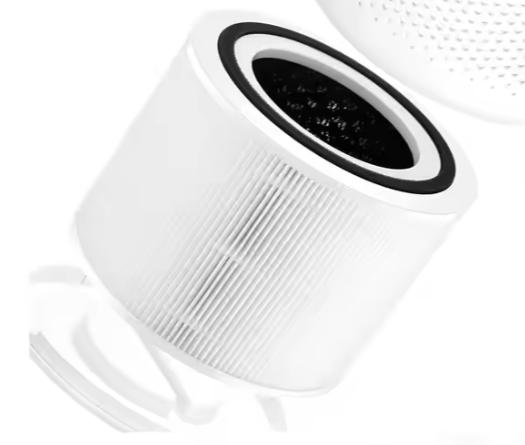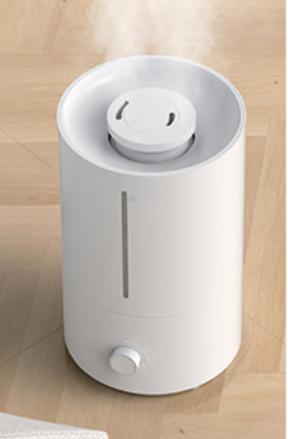Allergies can make life very uncomfortable, causing symptoms such as sneezing, congestion, and itchy eyes. Managing indoor air quality is crucial for easing these symptoms. Many people wonder what is better for allergies humidifier or air purifier. Understanding how each device works can help you make an informed decision for improving your indoor air environment and allergy relief.

Understanding Allergies and Indoor Air Quality
Allergies occur when the immune system overreacts to substances like pollen, dust mites, pet dander, and mold spores. These triggers are often found in indoor air, leading to persistent symptoms, especially when windows and doors are kept closed. Improving indoor air quality is essential for reducing exposure to these allergens.
Indoor air quality depends on multiple factors, including the presence of allergens, humidity levels, and ventilation. Poor air quality can worsen allergy symptoms and contribute to respiratory issues. Devices like humidifiers and air purifiers can play a significant role in managing indoor air quality, but their effectiveness varies depending on the specific needs and conditions of your home.
How Do Humidifiers and Air Purifiers Work?
Humidifiers: Adding Moisture to the Air
Humidifiers work by adding moisture to the air, which can be beneficial in dry indoor environments. Dry air can irritate respiratory passages, worsen allergy symptoms, and make the airways more susceptible to allergens. By increasing humidity levels, humidifiers can soothe dry nasal passages and throat, reducing discomfort for allergy sufferers.
Air Purifiers: Removing Airborne Contaminants
Air purifiers, on the other hand, are designed to remove airborne contaminants such as dust, pollen, pet dander, and mold spores from the air. They use filters, such as HEPA filters, to trap these particles and prevent them from circulating indoors. This can significantly reduce the concentration of allergens in the air, providing relief for those who suffer from allergies.
Which Is More Effective for Allergy Relief?
Addressing Airborne Allergens
When it comes to neutralizing airborne allergens, air purifiers are generally more effective. They directly target and remove allergens from the air, reducing the overall allergen load and helping to alleviate symptoms. For individuals with severe allergy issues, a high-quality air purifier with a HEPA filter is a solid investment.
Managing Dry Air Symptoms
Humidifiers are most beneficial for individuals who experience discomfort from dry air. By maintaining an optimal humidity level (ideally between 30-50%), humidifiers can help prevent dryness that irritates nasal passages and the throat, which can exacerbate allergy symptoms. However, it’s important not to over-humidify, as excessive moisture can encourage mold growth and dust mites, worsening allergies.

Can You Use Both Devices Together?
Benefits of Combined Use
Using both a humidifier and an air purifier together can offer comprehensive allergy relief. The air purifier can remove allergens, while the humidifier maintains optimal humidity levels, providing a balanced and comfortable environment. This combination can be particularly effective during dry seasons when both airborne allergens and dry air are concerns.
Considerations for Simultaneous Operation
When using both devices together, it’s essential to monitor indoor humidity levels to prevent over-humidification. Maintaining humidity between 30-50% helps in avoiding conditions that promote mold growth. Regular maintenance of both devices is also crucial to ensure their effectiveness and prevent the spread of contaminants.
Conclusion
Both humidifiers and air purifiers play vital roles in managing indoor air quality and alleviating allergy symptoms. What is better for allergies humidifier or air purifier? Choosing the right device depends on your specific needs—whether you need to remove airborne allergens or manage dry air. In some cases, using both in tandem may provide the best relief.
FAQ
Can a humidifier make allergies worse?
Yes, if a humidifier is not cleaned regularly, it can become a breeding ground for mold and bacteria, which can worsen allergies. Additionally, over-humidification can increase mold growth, exacerbating allergy symptoms.
How often should I clean my humidifier or air purifier?
Humidifiers should be cleaned and disinfected every few days, while air purifiers’ filters should be cleaned or replaced according to the manufacturer’s instructions, typically every few months. Regular maintenance is essential to ensure both devices function properly and safely.
What humidity level is best for allergy sufferers?
The optimal indoor humidity level for allergy sufferers is between 30-50%. Maintaining this range helps prevent dry air symptoms without encouraging mold growth and dust mite proliferation.